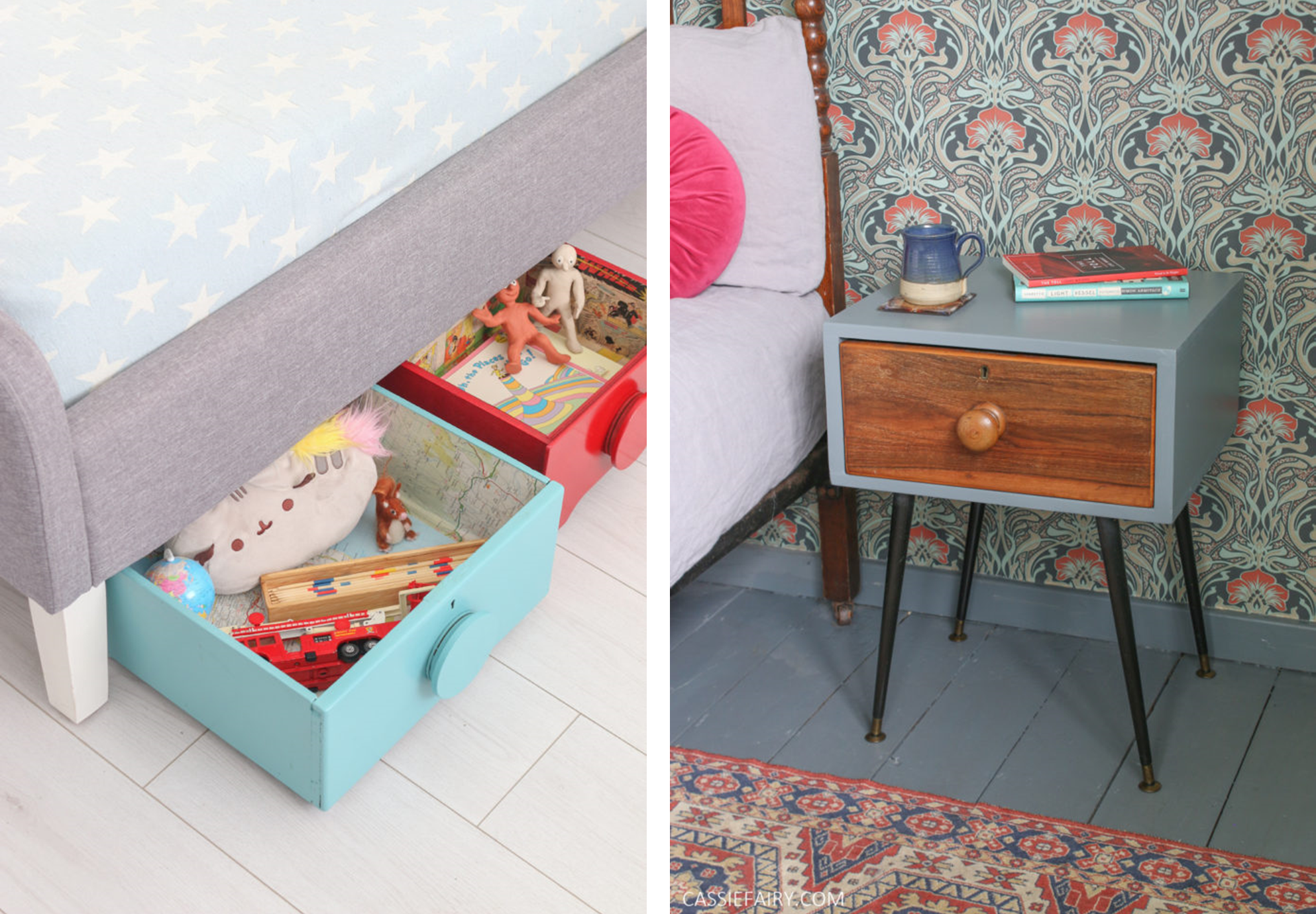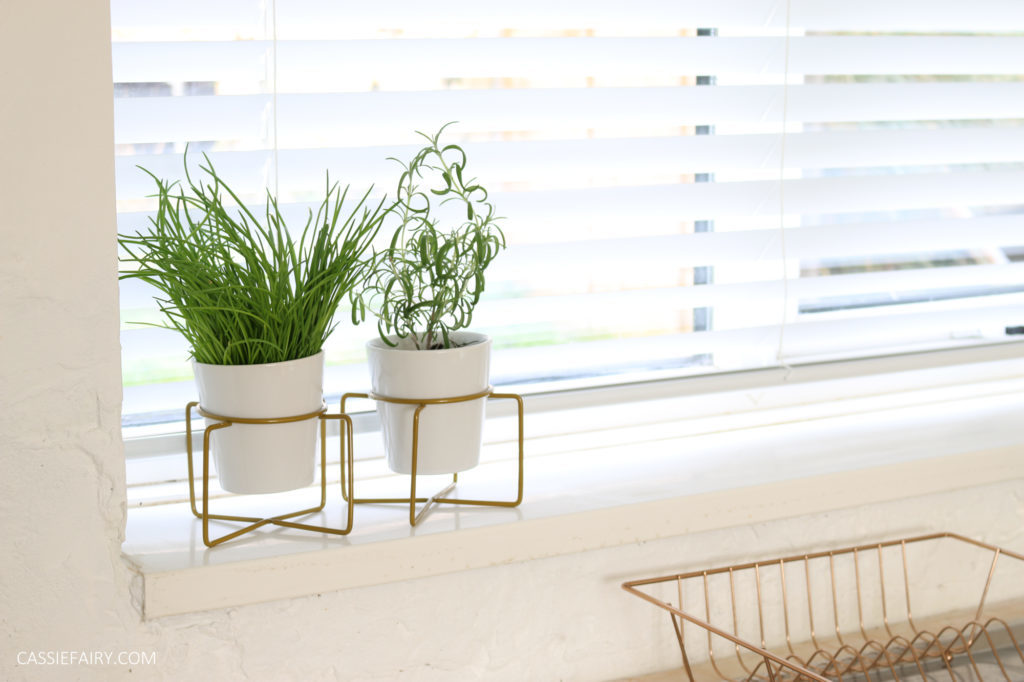
As a society, we are more conscious than ever before about our own carbon footprint and the collective damage that we are doing to our planet. Therefore, many of us are seeking out additional ways to cut down the harm we do to the planet by living a greener and more environmentally friendly life.
While more and more people every day are looking for new methods to go green at home, many start with their own kitchens. You may be surprised to learn that each kitchen is adding to the nation’s environmental damage every day and even the smallest of changes can make a significant difference. To give you a few ideas, here are four simple tips that can make your kitchen a greener and more environmentally friendly place…
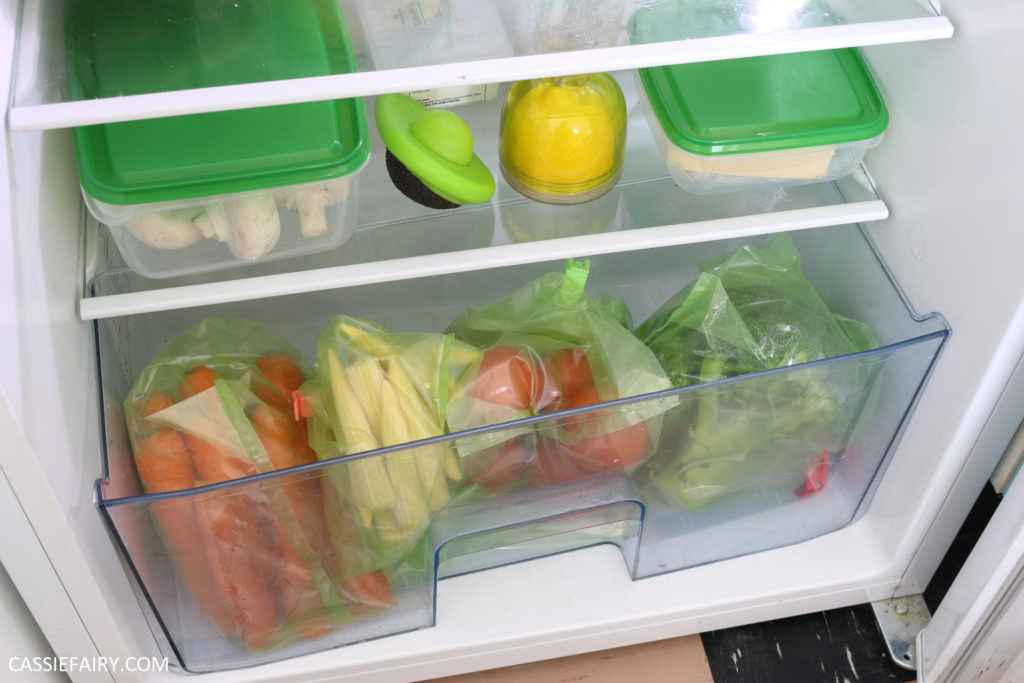
Home composting
More households are starting to do home composting of their food waste. Not only does it make for a great soil conditioner for your garden, but it’s also a much more environmentally friendly option. Around one-third of landfill waste is compostable material, explaining why so many UK and US landfills are filling up so quickly, and goes to show that home composting can make a big difference.
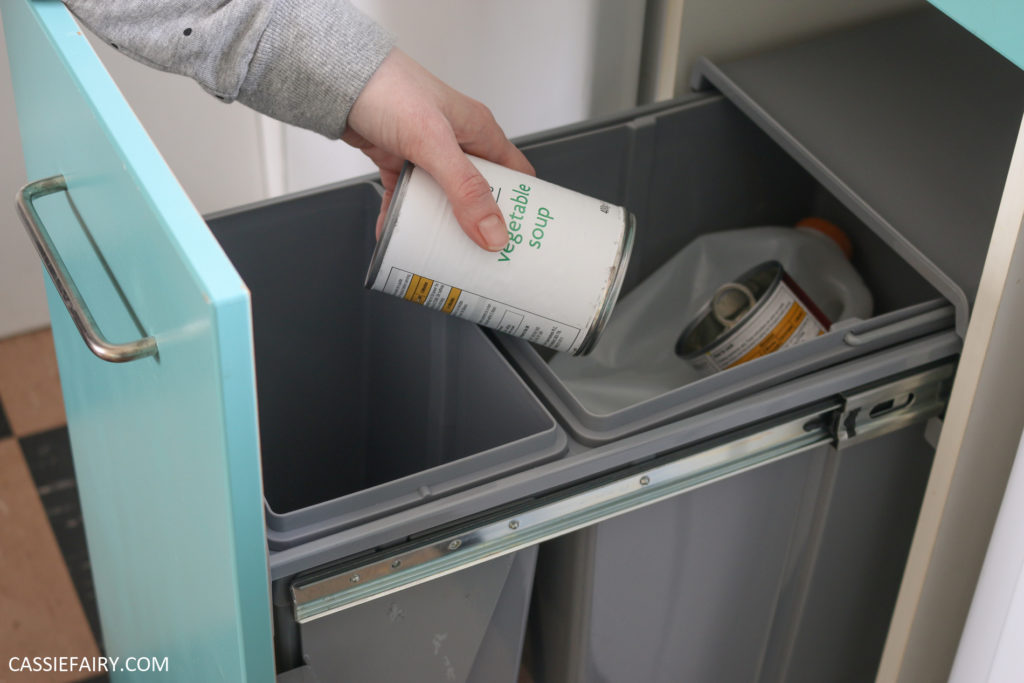
Recycle, recycle, recycle
While recycling has become standard in most households over the past couple of decades, there are still ways that we can be more efficient when it comes to recycling. While your local council most likely comes and collects your recycling from the roadside, there are still more ways to sort your recycling and other places you can go to recycle.
You can make recycling more convenient by creating an area in the kitchen where you store a small set of kitchen recycling bins before emptying into the larger bin outside ready for collection. Don’t forget that the easier something is, the more likely you are to do it!
Some recyclable items aren’t picked up by the curbside collection so familiarise yourself with the dos and don’ts of your council’s recycling scheme to make sure you’re not adding something that will contaminate the bin. And the other things that can’t go into recycling – glass, batteries, wood etc – might be able to be recycled at your local household waste recycling centre so you can store these up until you’re ready to go to the tip.
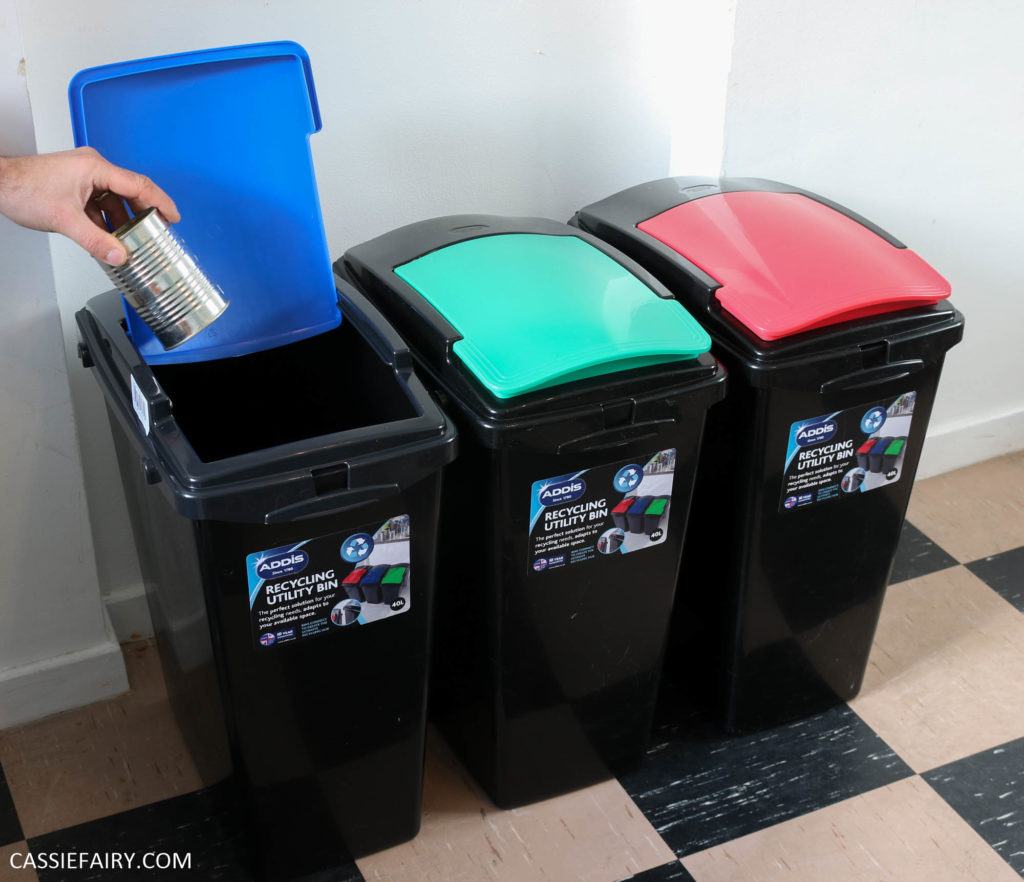
Use eco-friendly kitchen accessories
We can end up using a lot of plastic in our kitchen, from plastic containers for food that we buy from the supermarket to plastic utensils and accessories such a chopping board and cups. Therefore, you should avoid buying cheap plastic items and instead invest in greener and longer-lasting accessories.
For example, you could get a wooden cutting board, and with these tips for seasoning them the right way, it could last you for years. I’ve had a butcher’s block chopping board that has been going strong for 16 years and has outlived countless plastic boards! Choosing the right accessories when it’s time to revamp your kitchen will help you to both save the planet and your purse.
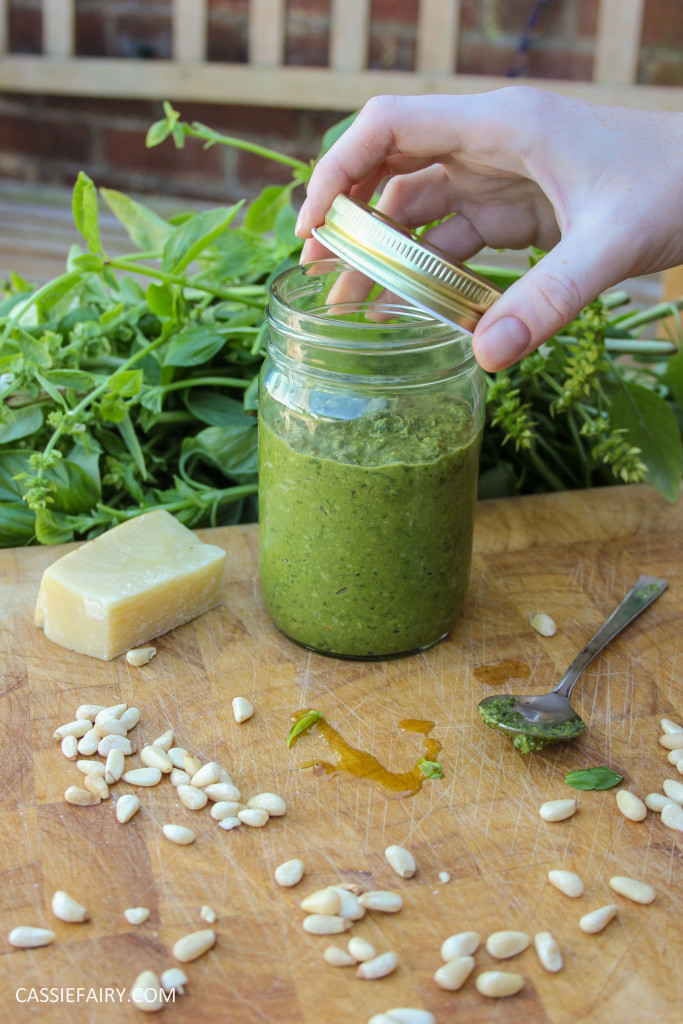
Get a dishwasher
You may be surprised to know that research has found that using a dishwasher appliance may be a more environmentally friendly alternative to washing your dishes by hand. When washing dishes ourselves, we often leave taps running, meaning that a lot of water is going to waste. But by using an A+ energy-star rated dishwasher, you can save around 10 percent more energy and use 20 percent less water than standard dishwashers. Of course, this depends on how many dishes you have to clean – it’s not environmentally friendly or energy saving to put on a half-load! In that instance, hand washing beats dishwashers, no question.
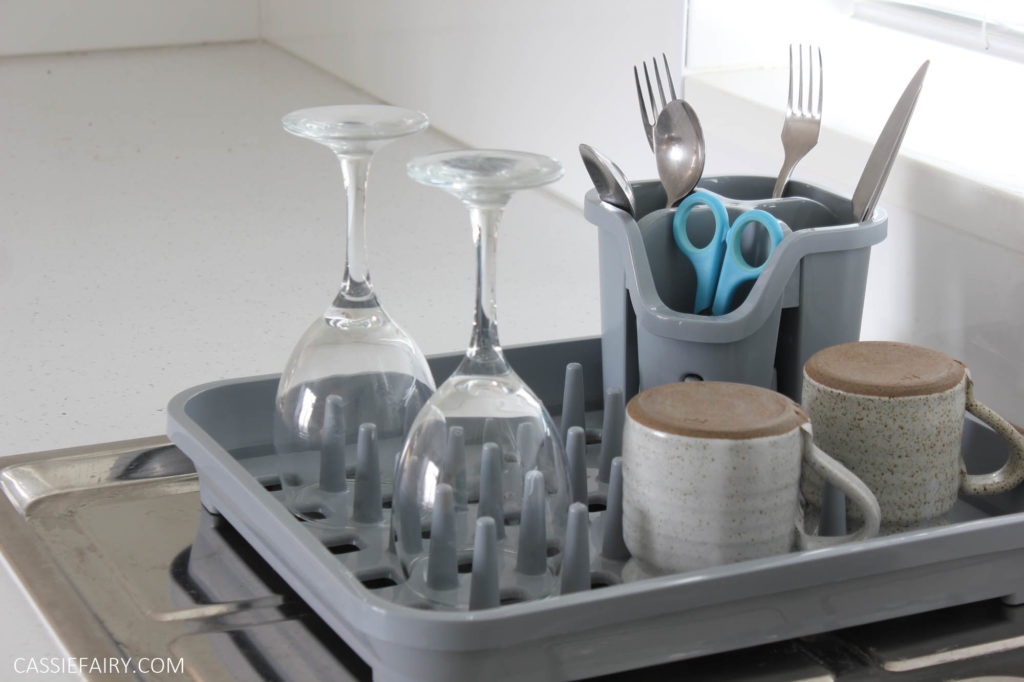
Many people assume that in order to live a greener and more environmentally friendly lifestyle, they must make huge sacrifices. However, by making even the smallest of changes and following some of these tips, you can begin to reduce your overall carbon footprint. Every little change helps and if everyone took these steps the combined effort would make a world of difference. Let me know your tips for staying green and reducing waste in the kitchen below 🙂

This blog post is an advertisement feature that has been written in collaboration with a sponsor. The pink links in this post indicate a sponsored link 🙂





















